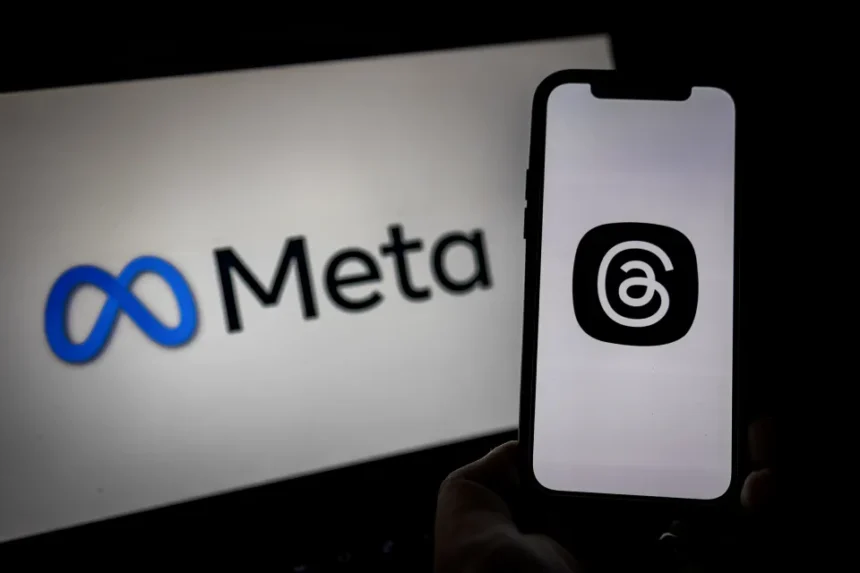“It’s proven impractical to draw a red line around what is and is not political content.”
In a surprising move, Meta is shaking up its moderation and content policies. Instagram head Adam Mosseri announced today that both Instagram and Threads will reintroduce political content into their recommendation algorithms. This marks a significant departure from the platforms’ previous stance, adopted last year, where political content was strictly opt-in for users.
The new approach offers users three levels of political content exposure: “less,” “standard” (the default setting), and “more.” Mosseri explained the shift, stating, “It’s proven impractical to draw a red line around what is and is not political content.” The change will begin rolling out this week for users in the United States and will expand globally over the coming weeks.
A Strategic Shift
This latest policy adjustment is just one of several recent moves that signal a broader transformation within Meta. Some analysts believe these changes aim to align with the incoming administration of President-elect Donald Trump. Mark Zuckerberg, Meta’s CEO, recently announced plans to replace third-party fact-checkers with a “Community Notes” model for Facebook, Instagram, and Threads—an approach reminiscent of the one adopted by X (formerly Twitter). This model shifts content moderation towards community-driven feedback rather than relying on external verification.
Adding to the speculation, Joel Kaplan—a figure known for his strong Republican ties in Washington, D.C.—has been appointed as Meta’s new president of global affairs. He succeeds Nick Clegg, whose tenure was characterized by efforts to maintain a neutral stance on political matters.
The Challenges of Moderating Political Content
The decision to reintegrate political content into recommendations highlights the complexities of defining and moderating such material. Mosseri’s acknowledgment of the difficulty in “drawing a red line” underscores the gray areas Meta faces in distinguishing political content from other types of posts. This dilemma has long been a point of contention for social media platforms, where algorithms often struggle to accurately classify content without unintentionally censoring or amplifying certain voices.
With the new tiered approach, Meta aims to strike a balance between user control and platform-wide engagement. By allowing users to adjust their exposure to political content, the company seeks to cater to a wide spectrum of preferences while avoiding the pitfalls of blanket policies that may alienate certain groups.
Controversy Surrounding Meta’s Moderation Practices
Meta’s recent moves haven’t been without controversy. Just yesterday, reports surfaced that Instagram had erroneously blocked several LGBTQ-related hashtags, categorizing them as “sexually suggestive material” for months. The company has since called this a mistake, but the incident has drawn criticism from advocacy groups and users alike, further fueling concerns about Meta’s content moderation capabilities.
These missteps come at a time when the company is under heightened scrutiny for its role in shaping public discourse. Critics argue that Meta’s evolving policies could open the door to misinformation and divisive content, especially as the platforms reintegrate political material into user feeds.
The Broader Implications
Meta’s policy changes reflect a broader trend in the social media landscape, where platforms are reevaluating their approaches to content moderation in an increasingly polarized world. The decision to emulate X’s community-driven model and reintroduce political content recommendations signals a shift towards prioritizing user engagement and autonomy over stringent moderation.
However, these changes also raise important questions about the role of social media companies in mediating political discourse. As platforms like Instagram and Threads play an ever-growing role in shaping public opinion, the balance between free expression, accurate information, and user safety becomes increasingly precarious.
What’s Next for Meta?
As Meta rolls out these updates, the company faces the dual challenge of addressing user concerns while navigating the complex political landscape. The reintroduction of political content and the shift towards community-driven moderation models indicate a willingness to adapt—but also a gamble that could redefine the company’s relationship with its users.
Whether these changes will strengthen Meta’s position as a leading social media giant or lead to further controversies remains to be seen. For now, one thing is clear: the company’s decisions in the coming months will have far-reaching implications for its platforms and their role in shaping global conversations.










